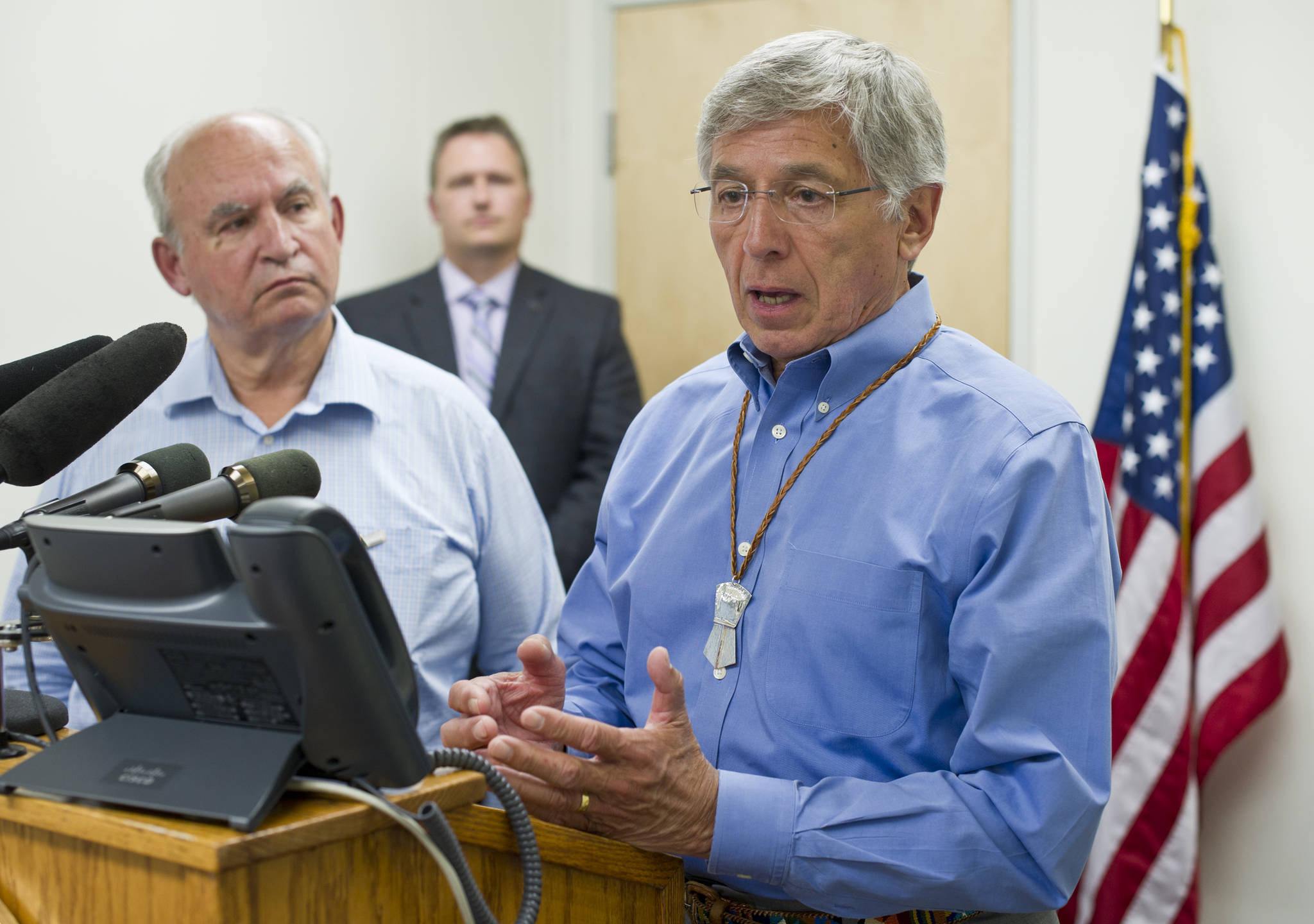Last month, something fishermen, tribes, scientists and concerned Alaskans have long worked for came to pass — the U.S. State Department met with Global Affairs Canada to discuss the threats B.C. mining poses to the transboundary Taku, Stikine and Unuk Rivers, which produce the majority of Southeast’s wild salmon.
U.S. Sens. Lisa Murkowski and Dan Sullivan, Rep. Don Young, Gov. Bill Walker and Lt. Gov. Byron Mallott have been instrumental in getting transboundary mining on the agenda for this year’s annual U.S.-Canada bilateral meeting, held in Washington, D.C. on April 26. Sullivan and Mallott traveled to Ottawa in February and, among other things, requested B.C. clean up the abandoned Tulsequah Chief mine, which has been actively polluting northern Southeast Alaska’s most productive salmon system, the Taku, for some 60 years. Recently, Murkowski set aside money in the federal appropriations bill to repair a vital Unuk River stream gauge and to enable USGS crews to gather data on the river this season.
Also important was pressure from other U.S. states that share B.C.’s border. Teck Coal mines in B.C. have been polluting the transboundary Elk-Kootenai watershed, shared by B.C., Montana, and Idaho, for decades. Despite this pollution and lack of international oversight, however, the B.C. government recently granted Teck Coal permission to expand some of its mines. Montana Gov. Steve Bullock and Sen. Jon Tester asked the U.S. State Department to intervene to protect Montana’s threatened transboundary river.
Finally, also elevating transboundary issues to the point of them finally being discussed at this bilateral meeting was the signings of the Statement of Cooperation and Memorandum of Understanding between B.C. and Walker and Mallott. Although these agreements are not binding and have no dollars attached to them, they are useful tools to form action plans. And action is what we need.
To our elected officials and U.S. leaders we have four requests for the next bilateral meeting this October in Ottawa. Please work toward securing binding financial assurances for our fishing fleet and communities if we suffer financial losses from real or perceived water quality contamination due to B.C.’s development projects. Please continue funding for baseline water quality testing. Please know that commercial fishermen and others are concerned with the cumulative effects multiple mines could have on Alaska’s rivers and salmon, especially with the wave of at least 12 mines B.C. is rushing through approval in transboundary watersheds. We strongly encourage the State Department to use the boundary waters treaty of 1909 as a tool to require regulatory mechanisms to keep Alaska’s waters clean and healthy. And last but certainly not least, please ensure the Tulsequah Chief Mine is cleaned up, once and for all.
Though April’s bilateral meetings were important, they haven’t led to action. If transboundary mining issues are to truly be addressed at a national level, Alaska’s leaders must work together and with other states that have nearby B.C. mines, and they must keep pushing for binding international agreements. It is our hope that the next bilateral meeting, scheduled for October, will be one of action and solid commitments — that all parties will walk away with a clear understanding of what specifically needs to be done, who will take responsibility for each task, when each task will be accomplished and how each task will be funded. Tasks and timelines should be aggressive yet reasonable. It is long overdue that we advance the protection of our waters.
Thank you for all you’ve done so far. Members of United Southeast Alaska Gillnetters (USAG), who fish in front of transboundary rivers, have repeatedly rated transboundary waters as a top concern. USAG represents the interests of 473 permit holders and their families; we want protections for our critical freshwater salmon rearing habitat.
• Cynthia Wallesz is the executive director of the United Southeast Alaska Gillnetters Association.

